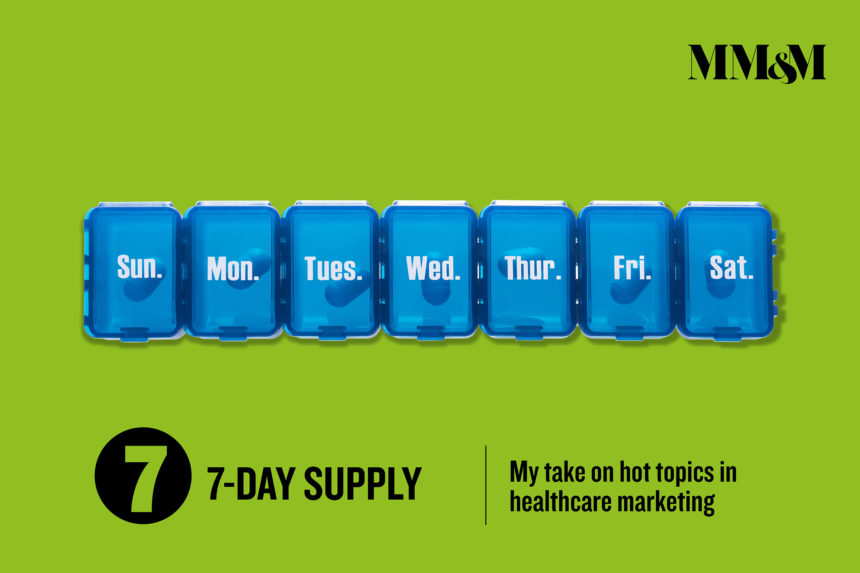Since the start of the pandemic, Dr. Anthony Fauci, the nation’s top infectious-disease expert, has rarely shied away from a media interview. To that end, Dr. Fauci recently sat down – virtually – for one of his more atypical interviews, this one with actor Dennis Quaid.
Their talk was part of an advertising campaign that the Department of Health and Human Services bid out over the summer with the aim to “defeat despair and inspire hope” surrounding coronavirus. Quaid was likely chosen because he praised President Donald Trump’s handling of the outbreak response back in April.
Others were recruited based on their appeal within certain ethnic and religious communities. HHS was developing PSAs pairing Surgeon General Dr. Jerome Adams with gospel singer CeCe Winans, popular on the Christian music scene. Another video featured the duo of Dr. Brett Giroir, the assistant secretary for health, and Hasidic singer Shulem Lemmer, well-known in Orthodox Jewish circles.
But these three were the only celebs HHS landed from a wish list of several-dozen, according to a report by Politico.
And while some other announcements have already started airing, including one to encourage donation of convalescent plasma by COVID recoverees and an NIH-funded series of ads encouraging minority enrollment in clinical trials, it may be a while before HHS’s star-studded videos reach intended audiences – if they ever do.
That’s because the $250 million-plus contract for the campaign, which was won by communications firm Fors Marsh Group last month, is on hold pending a House investigation. The House Committee on Oversight and Reform sent letters to Health Secretary Alex Azar and to Ben Garthwaite, Fors Marsh’s CEO, calling on both to suspend work until they can assure safeguards are in place to ensure the contract will be used solely to provide accurate public health information
Following those letters, on October 1 House Democrats expanded their investigation, requesting documents from two other firms, Atlas Research and its subcontractor DD&T Group, regarding video work for the ad campaign. The following day, Azar was grilled by Democratic lawmakers during a hybrid in-person/remote hearing led by the Select Subcommittee on the Coronavirus Crisis.
In a particularly heated moment during the nearly three-hour hearing, Rep. Carolyn Maloney (D-NY), chairwoman of the oversight committee, confronted Azar on the pricey video effort and ad barrage, timed to debut right before the election. “Whose idea was it?” she asked.
“I have ordered a strategic review of this public health education campaign that will be led by our top public health and communications experts to determine if the campaign serves important public health purposes,” Azar responded. An HHS spokesperson later told MM+M that “We will have more to say once that review is in.”
Capitalizing on star power to broadcast public-health messages to a wider audience isn’t a bad idea, when done right. Dr. Fauci’s various chats with higher-profile celebs, like NBA star Steph Curry and actor Tiffany Haddish, have racked up hundreds of thousands of views on their respective YouTube channels. For the “defeat despair” effort, HHS was reportedly pursuing A-listers Justin Timberlake, Taylor Swift and Billy Joel.
Nor was the $250 million-plus price tag unjustified in the recent history of important public health messaging. Azar pointed out that the Food and Drug Administration’s anti-tobacco campaign cost $250 million, while Obamacare-related outreach ran $280 million.
But in this case, troubling questions make the HHS’s eye-popping outlays suspect. Democrats said they’re concerned the effort is merely a “political propaganda” push masquerading as legitimate public-health outreach.
Those suspicions are very real, they argue, given that Fors Marsh was set to report to Assistant Secretary for Public Affairs Michael Caputo, who is a former campaign operative for Trump and not a public health professional. Moreover DD&T, one of the firms being probed, is run by a former Caputo business partner.
Caputo has since gone on medical leave, but other concerns remain. How could an effort coming so late in the game and one conceived to “defeat despair” – rather than to achieve science-based solutions, like finally containing the virus and preventing more unnecessary infections and deaths – be a sound use of taxpayer dollars?
For an administration that spent much of the summer months undercutting Dr. Fauci and other members of its own coronavirus taskforce, this sudden embrace of science comes about six months too late.







